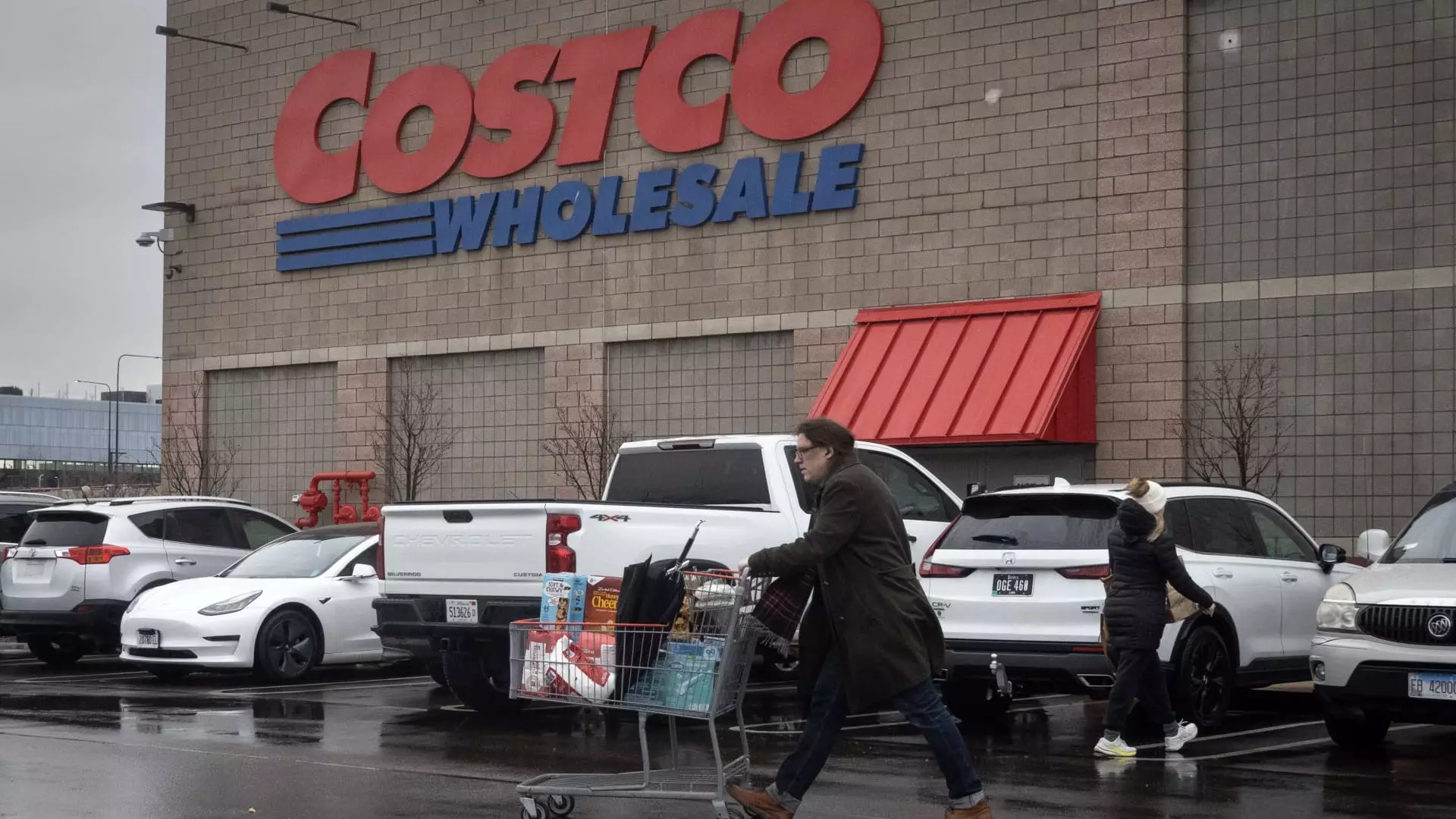Costco, a giant in the wholesale retail industry, recently released its earnings report for the second quarter, which showcased a mixed bag of results. While the company successfully surpassed revenue expectations, it also fell short on earnings per share, leading to a modest decline in its stock price. The disconcerting aspects of this report transcend mere numbers; they reveal troubling trends in consumer behavior and potential long-term ramifications for the wholesale model.
Mixed Results: A Deep Dive into Earnings
Costco posted an earnings per share (EPS) of $4.02 against an expectation of $4.11, which perhaps raises flags about its profitability amid rising costs. The revenue figure of $63.72 billion was a bright spot, surpassing projections of $63.13 billion. However, the juxtaposition of earnings miss against a revenue beat sends mixed messages to stakeholders. This dichotomy may suggest that while consumers continue their love affair with Costco’s offerings, the sheer scale of expenditures is squeezing profit margins.
The net income increase of just $1.79 billion compared to $1.74 billion the previous year further complicates the narrative. This barely perceptible rise juxtaposed with significant revenue growth may signal that the famed Costco model, which prides itself on delivering value, could be in jeopardy as operational costs climb.
Tariffs and Their Rippling Consequences
CEO Ron Vachris’s remarks on the uncertain impact of tariffs make it clear that Costco is at the mercy of geopolitical dynamics. With a third of its U.S. sales stemming from imports, and a significant portion from countries like China and Mexico, Costco’s cost base is increasingly fragile in today’s politically charged atmosphere. Trump’s recently imposed tariffs, doubling the rates on China and increasing costs from neighbors Canada and Mexico, further threaten the sustainability of Costco’s pricing strategy.
What’s particularly alarming is the suggestion that margins in grocery are already “much tighter.” If Costco cannot stave off price increases, members who have historically flocked to Costco for value could start seeking alternatives, destabilizing its longtime appeal. The reality is grim; even slight price increases could lead to a mass exodus of price-sensitive consumers battling inflation on multiple fronts.
Changing Consumer Habits and Selective Spending
The report notes that consumer behavior remains consistent, but this may not be as reassuring as it sounds. Costco members are becoming increasingly selective in their purchases, a phenomenon that resonates with broader economic anxiety. As both inflation and tariffs loom, the members’ focus on value, quality, and novelty could spark a paradigm shift—one where selective spending may become the new norm.
The e-commerce segment showed strong growth, with a notable 20.9% year-over-year increase. However, if consumers begin opting out of the warehouse shopping experience, even the online gains could prove inadequate in compensating for losses in-store.
The implications are profound. If shoppers turn away from the bulk buying that defines Costco, it could lead to diminished sales across the board, leading to escalating financial strain for the retailer.
Resilience or Recklessness: The Fresh Foods Category
Interestingly, Costco’s fresh food category showed growth, particularly in meat, as consumers increasingly gravitate towards lower-cost proteins. But one must question whether this trend towards cheaper alternatives is merely a stopgap measure for consumers in a pinch. Is Costco merely benefiting from a fleeting moment of economical sacrifice, or are these sales a testament to the resilience of its trusted brand amidst financial pressures?
While the growth in the fresh foods category may be momentarily promising, the underlying economic forces at play raise serious concerns about future consumer loyalty. The same customers opting for lower-cost options today may be singing a different tune tomorrow if pressures from inflation persist or worsen.
The Broader Landscape: Implications for Retail
Costco’s earnings report not only reflects its individual challenges but also encapsulates broader trends in the retail sector. As inflation peaks and geopolitical tensions rise, companies like Costco may face unprecedented challenges in maintaining low prices without risking their profits. As competitors like Target and Best Buy sound the alarm bells about impending price hikes, Costco’s responses will be crucial to its reputation as the go-to budget retailer.
As economic conditions evolve, the pressures weighing on Costco may force it into a corner where it must either adapt its model increasingly or face backlash as members look elsewhere for value in these turbulent times. It’s clear—this is a defining moment not just for Costco, but for the retail industry as a whole.

